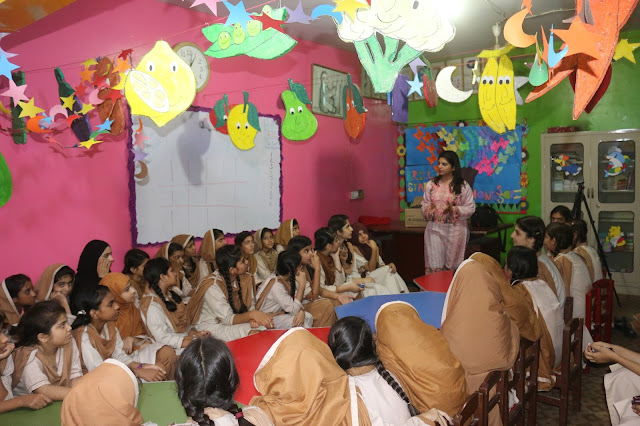Students are expected to study. But successful students are
expected to be all-rounders. They manage academics and extracurricular
activities equally well and the balance helps them grow into accomplished
individuals. But why, you may ask? The answer is that extracurricular
activities for students are not just a change from traditional classroom
learning but a lesson in itself irrespective of the level of students. Be it
high school students or university students, activities beyond the classroom
give students the platform to practice their learning.
 While young children find activities like theatre and
performance attractive ways to have fun outside the classroom, older students
find it extremely encouraging to flaunt their confidence. This is also true for
students who otherwise feel pressured in the classroom or are unable to stand
out. Extracurricular activities become the voice of these students and a way
for them to be noticed among their colleagues and teachers.
While young children find activities like theatre and
performance attractive ways to have fun outside the classroom, older students
find it extremely encouraging to flaunt their confidence. This is also true for
students who otherwise feel pressured in the classroom or are unable to stand
out. Extracurricular activities become the voice of these students and a way
for them to be noticed among their colleagues and teachers.
The advantages of such an exposure are quite obvious.
Students learn to do what they will do in real life. As adults know, most real
life situations don’t involve sitting and listening to teachers for extended
hours. They involve speaking, writing, performing, basically being active. And
extracurricular activities give young people the opportunity to do just that.
Today, young people find solace in technology inside and
outside the classroom, both. Thus, the need to promote healthy extracurricular
activities has become more pressing. The merits of technology for students are
well-established but they should not replace the role of physical activity or
exploring their interests in students’ life. Sports and creative activities can
in fact facilitate students in learning more about themselves.
To facilitate their children’s participation and strength in
extracurricular activities parents are always on the hunt for nutritious
supplement. In this regard, I have trusted Horlicks throughout raising my
daughter for a boost of nutrition along with her
meals. It is easy to forgo
nutritious food and get caught up in demanding academic schedules. On top of
this when students get involved in extracurricular activities they find it
difficult to remain on schedule and end up having health problems. Including
Horlicks in their diet, which has become synonymous with a nutrition enhancer for
school going children, will supplement the vitals they are missing in their
food. It is also difficult to introduce new products to children’s diet as they
are picky about taste but the fact that Horlicks is available in flavors like
Malt and Chocolate becomes an incentive for children to consume it.
I have fond memories of sharing Horlicks with my little one
all through her early years. As I return back from office exhausted, I would
quickly stir some Horlicks with milk in a big mug for both of us and we enjoyed
while she is settled on my lap. All refreshed to catch up on family time later
the evening.
 Extracurricular activities have strong ties with academics
if schools and colleges develop them in a certain way and parents encourage
children to be a part of them. These ties not only help in personal development
but have direct links to how careers unfold. Culturally we place a lot of
responsibility on young people’s shoulders to get A’s and top the class but we
also need to extend our goals and advice to students to join as many
extracurricular activities as they can manage so they are better adapted to the
world. Instead of stressing on reproducing exact knowledge we need to make them
adept at applying that knowledge in the work they do, in their daily lives and
personal interactions. This will ensure we have all-rounded practical
individuals as part of Pakistan’s future and not robots programmed to just know
everything.
Extracurricular activities have strong ties with academics
if schools and colleges develop them in a certain way and parents encourage
children to be a part of them. These ties not only help in personal development
but have direct links to how careers unfold. Culturally we place a lot of
responsibility on young people’s shoulders to get A’s and top the class but we
also need to extend our goals and advice to students to join as many
extracurricular activities as they can manage so they are better adapted to the
world. Instead of stressing on reproducing exact knowledge we need to make them
adept at applying that knowledge in the work they do, in their daily lives and
personal interactions. This will ensure we have all-rounded practical
individuals as part of Pakistan’s future and not robots programmed to just know
everything.
This blog is sponsored by Horlicks



